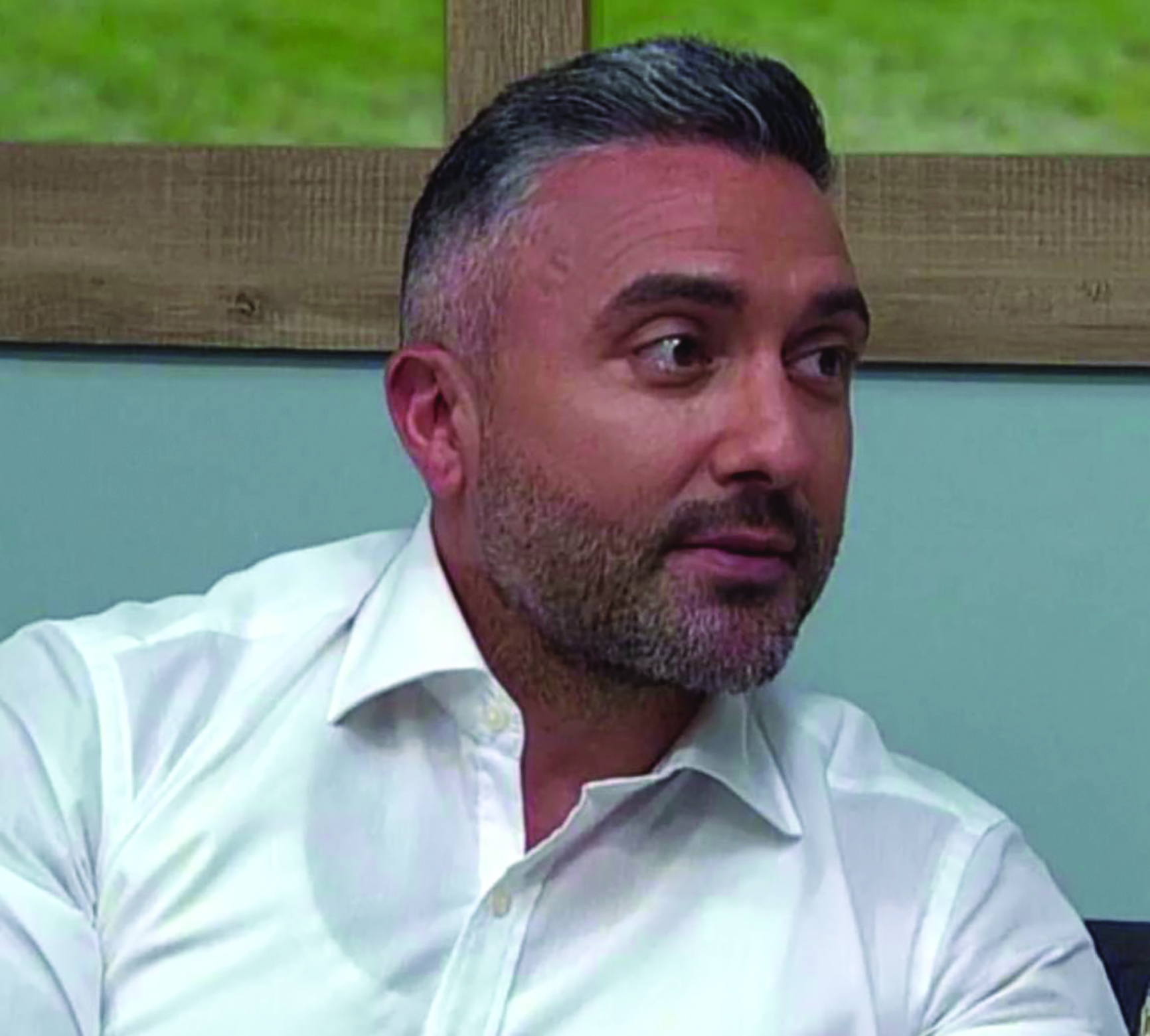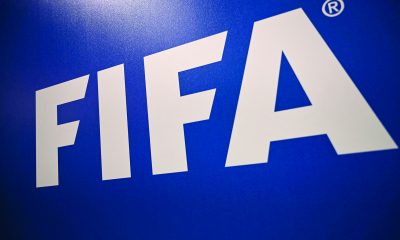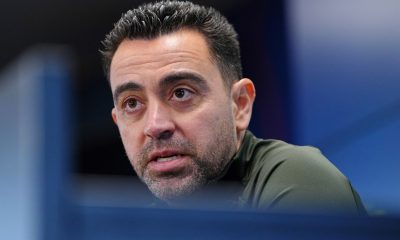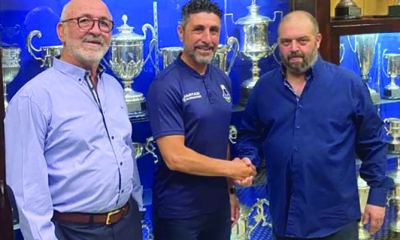
MFA Integrity Officer highlights the importance of duty to report
In the past few weeks, Maltese football has been rocked by news that the Malta Police Force and the Malta FA Integrity Officer were investigating on alleged match-fixing attempts in matches from the Premier League and the Gozo FA Division One.
The Times of Malta reported that a top official from a Premier League club was being probed for trying to approach an opposing player and try to convince him to throw a top-flight match.
Last week, a second match-fixing case came out as it was reported that a person has allegedly approached a Nadur Youngsters player in a bid to convince him to throw the match against fellow GFA Division One title rivals Qala Saints.
Herman Mula, the Integrity Officer of the Malta Football Association, said that a zero tolerance is adopted on these cases.
“In cases of corruption or match-fixing in sport, you have the criminal law used by the police and then there are the sporting regulations,” Dr Mula told the Times of Malta.
“In these instances, there is a common stance taken by FIFA, UEFA and national governing bodies around the world, such as the MFA, who adopt a zero tolerance approach. If someone is found guilty of match-fixing or corruption in sport he is handed a life-time ban.
“The biggest difference is on the manner on how these investigations are carried out from one sporting association to another. To give a simple example, the Malta FA does not have executive powers that has the International Tennis Federation who have the authority to confiscate the suspect’s mobile phone.
“Recently in Greece, a tennis player was handed a four-year ban because he refused to hand in his mobile phone.
“In Malta, the MFA Integrity Officer does not possess such executive powers, but the Police Force do, so that is why I collaborate closely with them.
“In these investigations, I am the first port of call with regards to information and intelligence gathering on the case particularly because players and officials are more at ease speaking with me than with them.
“Once I pass the information to the police, they can then take the next step and arrest and then charge people with match-fixing offences.”
Dr Mula said that the Maltese Police Force is taking match-fixing and corruption in sport more seriously. This is because such cases are being given more prominence on the media and more importantly organised crime groups are more equipped from the past due to the betting industries that make these offences much more financially lucrative.
“If the police is investigating a criminal organisation and you are struggling to infiltrate in their group, sports match-fixing could be one area that sees them more vulnerable and the police would be capable to infiltrate through their money laundering activity,” the MFA Integrity Officer said.
Dr Mula emphasised on the importance for the citizens to be aware of their duty to report when they have witnessed at first-hand attempts from persons to influence sporting events
“If you look at our legislation, the citizens don’t have any obligation to report the majority of the crimes such as murder or theft to give a couple of examples,” Dr Mula said.
“The only crimes where there is a duty to report are crimes against the state, such as a coup against a President or Prime Minister of a country, and from 2018, following the introduction of the legislation on Manipulation of Sport, match-fixing crimes.
“If someone witnesses or hears at first-hand someone who is trying to force corrupt someone in sport, you have a duty to report the crime by not later than 14 days after the incident. If you fail to do so you could be sentenced up to a year in prison.
“This regulation has been introduced as a deterrent as in general nobody reports such crimes. If you look at the regulations of UEFA and FIFA there is an obligation to report immediately, on the other hand, the MFA regulations give no more than 24 hours to someone to report.”
Dr Mula said that failure to do so could have serious implications.
“Sport is different to criminal legislation in these instances,” Dr Mula said.
“According to international regulations, if you fail to report that someone tried to approach you with the intent of forcing you to throw a match, you could be suspended between one and four years.
“A clear example is the match-fixing case involving the Malta U-21 team where Samir Arab was handed a two-year ban because he failed to report. Today, the player is collaborating with UEFA to promote the duty to report.
“MFA regulations are different as a person who fails to report after 24 hours can be suspended for up to a year.
“In case he failed to report and a week later he passes on the information which we didn’t know about, his punishment will be mitigated and will be suspended for a number of matches.
“I believe that this is the right approach as one has to appreciate that it’s not easy to come forward and report such cases.”
Dr Mula said, that Maltese law is far harsher.
“Maltese law is far harsher as if a player fails to report and is caught by the police he is charged to appear in court and could be handed a one-year jail term.
“In the Law of Manipulation of Sport there are no suspended jail sentences,” he said.
“I do not agree with this punishment as it’s not fair to throw someone in jail for failing to report because a person could be scared of divulging information or he didn’t trust the persons he had to speak to.
“I agree that there should be a sanction because even with these rules, people still don’t report due to the sensitivity of the case.”
Law amendment
Dr Mula said that to encourage more people to come forward and report these crimes there is a pressing need that the Law of Manipulation of Sports be amended so that people who speak through an anonimous report are protected from being charged for failing to report.
“Our legislation does not protect, guarantees confidentiality and even does not exonerate someone who files an anonymous report even though he gives proof to what he is saying and could still be charged for breaking the law,” Dr Mula said.
“On a recommendation by the Police Commissioner, the Attorney General can advice so that the person will not appear in court and can be given the conditions similar to a whistleblower.
“However, from a legal aspect, the status of anonymity is not included in the law and I believe that the law should be amended, particularly from a sporting aspect so that we promote the duty to report and be used as a reporting mechanism.”
Dr Mula said that when he speaks on this issue with the people that are in power, everyone agrees with his stance, but, unfortunately we are still waiting and hoping for an amendment to the law protecting anonymous reports.
“We had huge court cases where the state awarded a Pardon so that they protected people who had important information and that should happen the same in sports cases for match-fixing and corruption.
“This information could be crucial for the police and the Malta FA to make important inroads in such sensitive cases.”

World Cup News
-
FIFA World Cup
/ 1 week agoSaudi oil giant Aramco agrees major FIFA sponsorship deal
Saudi Arabia’s state oil giant Aramco and world football governing body FIFA on Thursday...
By AFP -
FIFA World Cup
/ 1 month agoSon scores but Thailand hold South Korea in World Cup qualifier
Son Heung-min scored but South Korea were held 1-1 at home by Thailand in...
By AFP -
FIFA World Cup
/ 2 months agoJapan-N. Korea World Cup game to stay in Pyongyang, JFA says
Japan’s World Cup qualifier against North Korea will be played in Pyongyang as planned...
By AFP -
FIFA World Cup
/ 2 months agoGerman ex-FA bosses on trial over World Cup tax evasion
Three German ex-top football officials went on trial on Monday in a 13.7-million-euro ($14.8...
By AFP

English Premier League
Watch: Haaland scores four in Man. City rout of Wolves

English Premier League
Ipswich promoted to Premier League for first time in 22 years

Winter Olympics
Watch: Geisenberger wins sixth Olympic medal to tie luge record

































